The various Canadian provinces have native Canadian flora in their emblems. The provincial floral symbols account for the flora of an area. A total of 13 extraordinary plants.
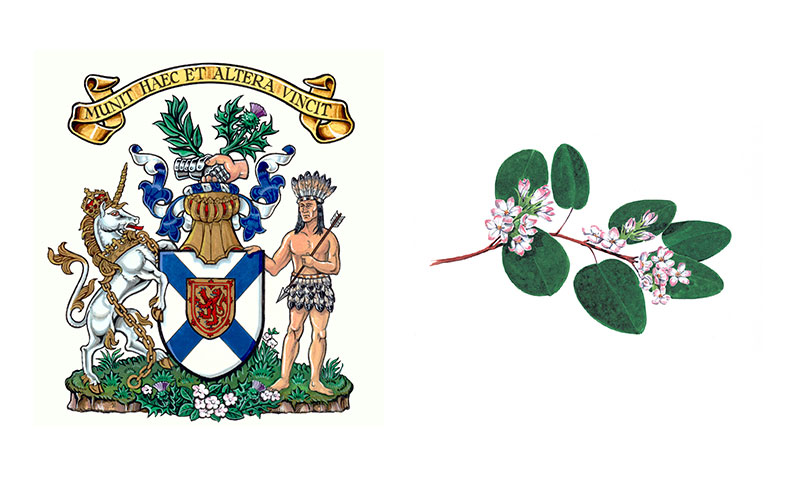
Nova Scotia
Since 1901, a white flowering creeping evergreen shrub, Epigaea repens (Mayflower/Trailing arbutus), with entire alternate leaves.
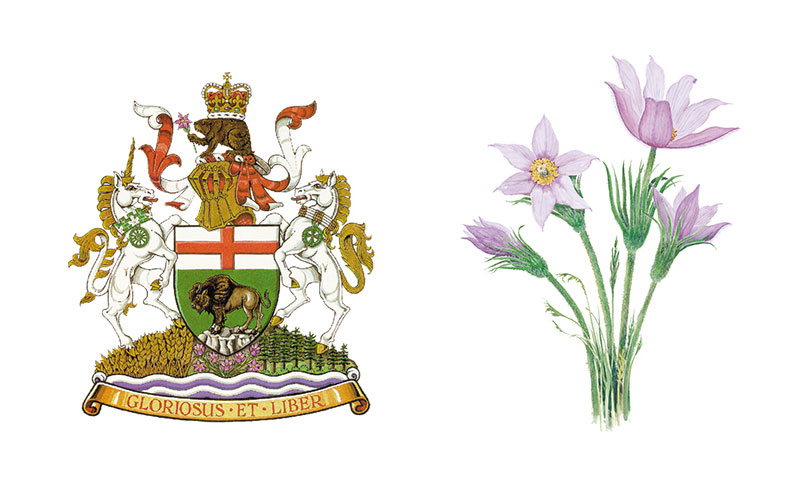
Manitoba
Since 1906, white-flowered coneflower Pulsatilla patens var. Wolfgangiana (Prairie crocus).

Alberta
Since 1930, wild rose (Rosa acicularis, Prickly rose).
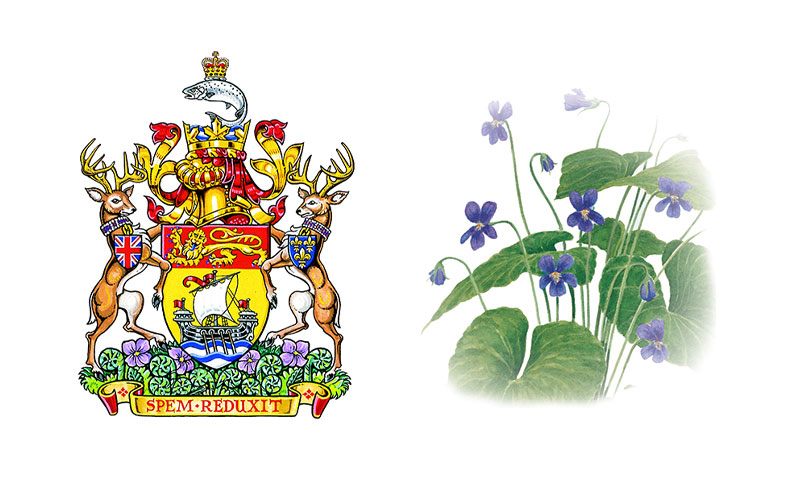
New Brunswick
Since 1936, blue-flowered viola Viola cucullata (Purple violet).

Ontario
Since 1937, a white flowering lily-like plant from our crow’s eye family – Trillium grandiflorum (Trillium).
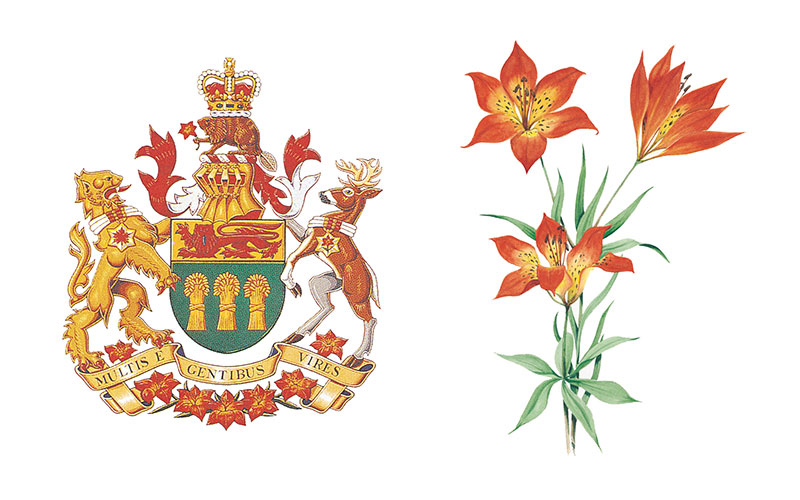
Saskatchewan
Since 1941, the red-flowered lily Lilium philadelphicum var. andinum (Western red lily).
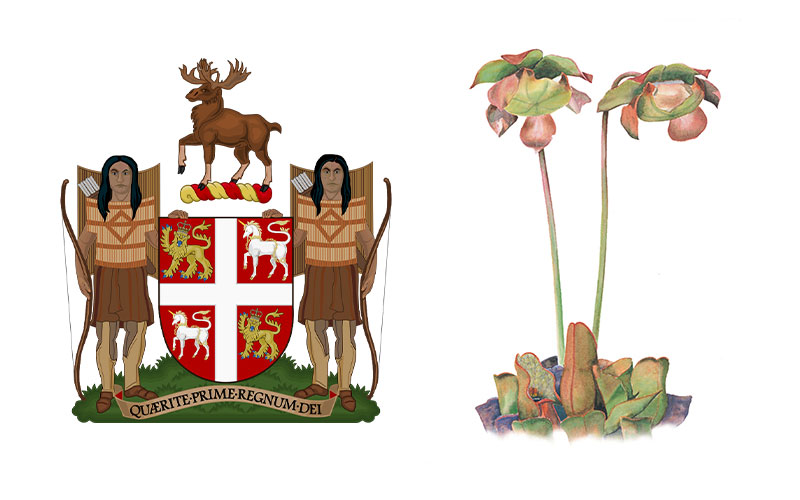
Newfoundland and Labrador
Since 1954, the unique insectivorous Sarracenia purpurea (Pitcher plant).
Of the eight species of Sarracenia occurring in the marshes and bogs of southeastern North America, purple loosestrife (Sarracenia purpurea) has the largest range extending from the Gulf of Mexico through the southern Hudson Bay coast and Great Lakes region, to Newfoundland.
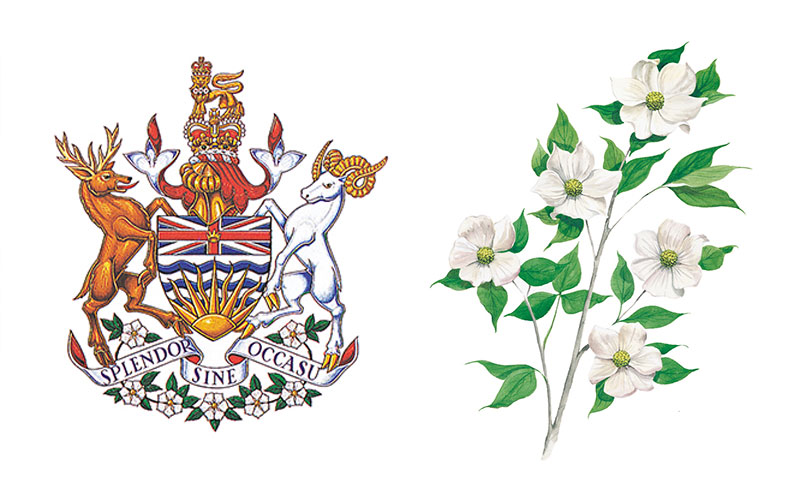
British Columbia
Since 1956, up to 8 m tall tree-like Cornus nuttalli (Pacific Dogwood), with large white leaves that look like flowers.
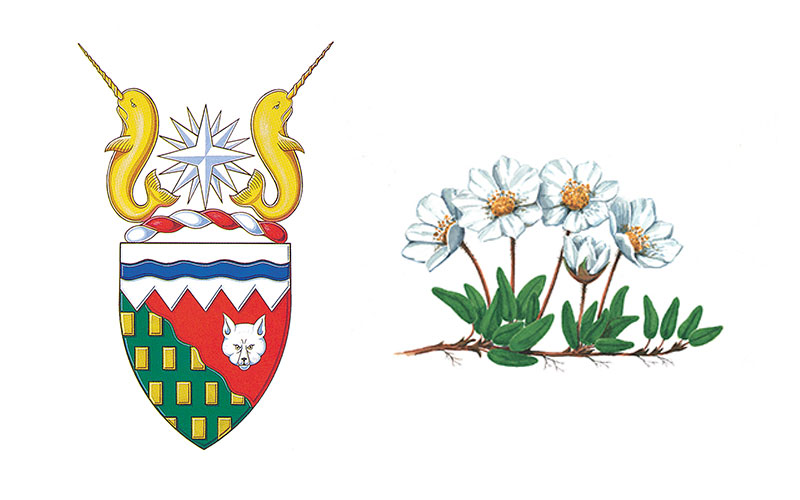
Northwest Territories
Since 1957, the North American species Dryas integrifolia (Mountain avens).
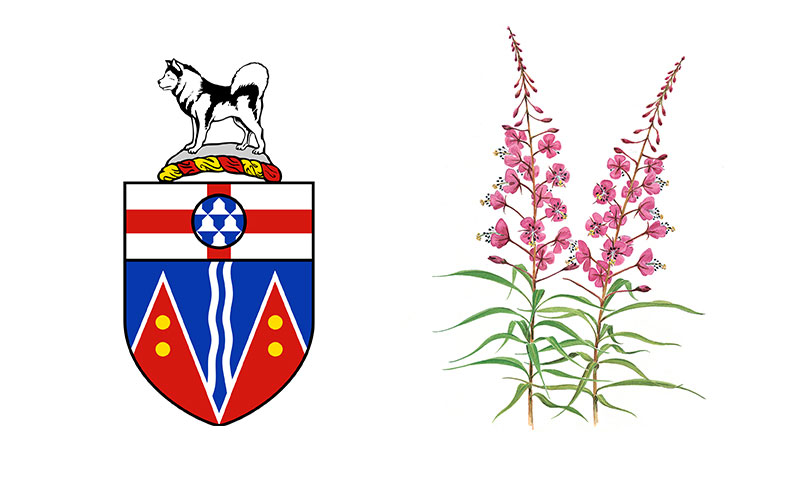
Yukon
Since 1957, narrow-leaved willow (Epilobium angus-tifolium, Fireweed) has been common in clearings and forest edges.

Quebec
Since 1963 has had the Bourbon lily, emblem of the French royal Bourbon family (Lilium candidum, Madonna lily), in its coat of arms.
Since 1999, it has had the Iris versicolor, which grows in more than half of Quebec.
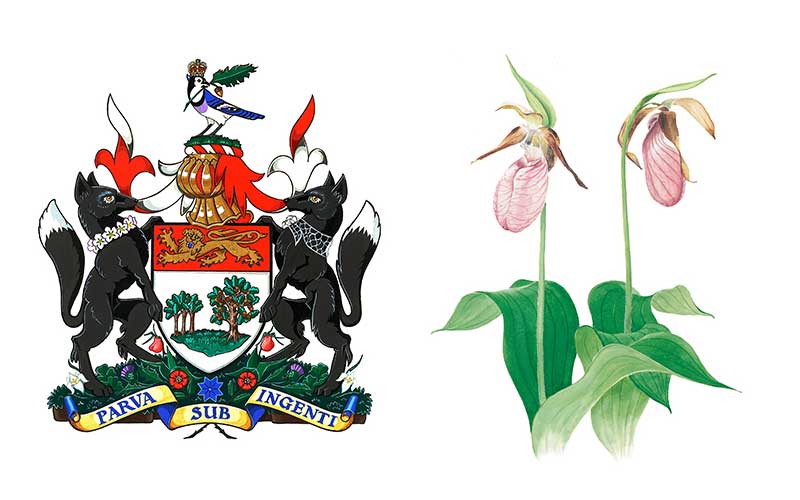
Prince Edward Island
Since 1965, the North American slipperwort Cypripedium acaule (Pink lady’s-slipper) with a leafless rhododendron and a large pink lip.
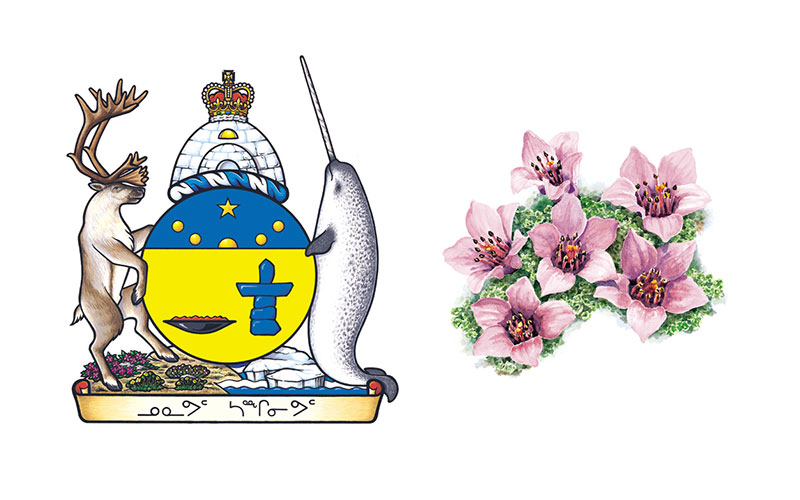
Nunavut
From 2000 is Nunavut’s floral emblem the purple saxifrage (Saxifraga oppositifolia).
Source of illustration:
Wikipedia and Government of Canada
